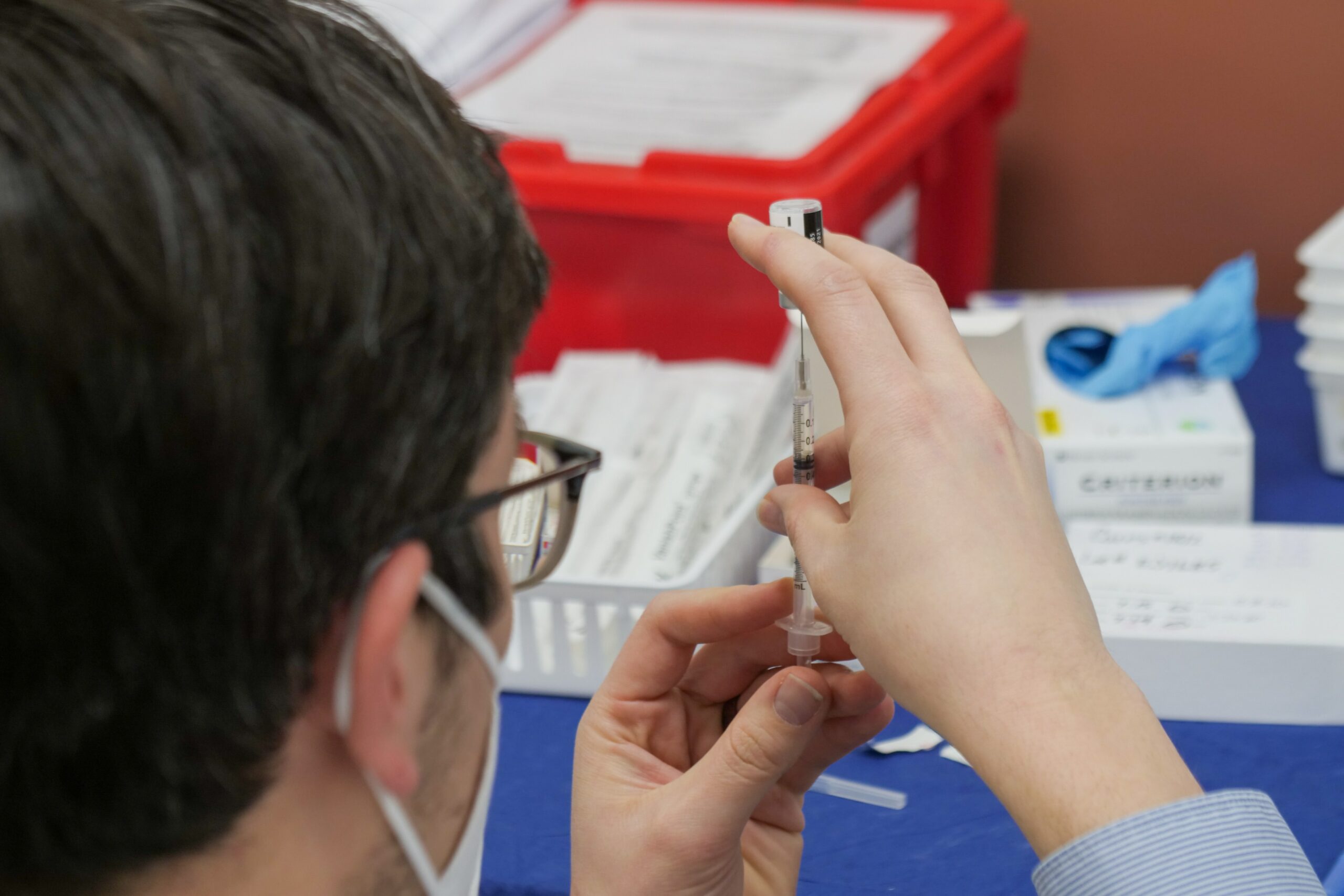COVID-19 pandemic affected millions of people worldwide. We are currently facing the vaccine era. We need effective and safe vaccines for the disease prevention. In the current study the authors wanted to determine the efficacy against COVID-19 infection and safety of a vaccine named mRNA-1273.
This is a randomized Phase 3 clinical trial conducted at 99 centers in the United States. People at high risk for COVID-19 infection and complications were randomized to a ratio of 1: 1 to receive 2 intramuscular injections 28 days apart from either the mRNA-1273 (100μg) vaccine or placebo vaccine. The primary endpoint of the study was the prevention of COVID-19 at least 14 days after the second dose of the vaccine in volunteers who had not previously had COVID-19.
A total of 30,420 volunteers participated in the study – 15,210 received mRNA-1273 and 15,210 received a placebo vaccine. All participants were >18 years old and were considered as individuals with an appreciable risk of SARS-CoV-2 infection, a high risk of severe Covid-19, or both. Stratification risk showed 4 independent groups as following: Persons 65 years of age or older, persons younger than 65 years of age who were at risk for severe Covid-19, and persons younger than 65 years of age not at risk.
Participants younger than 65 years of age were categorized as having risk for severe Covid-19 if they had at least one of the following risk factors, based on the Centers for Disease Control and Prevention (CDC) criteria available at the time of trial design: chronic lung disease, cardiac disease, severe obesity BMI≥40, diabetes, liver disease or HIV(+). The mean age of the participants was 51.4 years, 47.3% were female, 24.8% were ≥65 years of age while 16.7% were ˂65 years of age and had predisposing medical conditions that have been previously addressed.
More than 96% of participants received two injections, while 2.2% had an individual history of SARS-CoV-2 infection at the time of enrollment. Symptomatic COVID-19 disease was confirmed in 185 participants in the placebo group (56.5 per 1000 human-years) and 11 participants in the mRNA-1273 group (3.3 per 1000 human-years). Therefore, the efficacy of the vaccine was 94.1%. The efficacy of mRNA-1273 was at the same level when the number of COVID-19 infections was analyzed 14 days after the first dose of the vaccine, and among volunteers who had an individual history of previous COVID-19 infection at the time of enrollment and among volunteers who were 65 years of age or older. In all, 30 volunteers developed severe COVID-19 disease, including one death. Everyone was on the team that received the placebo vaccine. Moderate, transient cases of immunological reactions to the vaccine were more common in the group of volunteers who received mRNA-1273, however, serious side effects were rare, and the frequency did not differ between volunteers who received mRNA-1273 and placebo.
In conclusion, the mRNA-1273 vaccine is 94.1% effective in preventing COVID-19 infection, including severe disease, with a good safety profile. The Moderna vaccine (mRNA-1273) is 94.1% effective in preventing COVID-19 infection, including severe disease, with a good safety profile.
Comments:
Very promising results but we are still questioning ourselves for some non- already resolved issues:
- Which component of the vaccine is responsible for allergic reactions?
- Can we identify the reaction as an IgE or non-IgE mediated?
- How long the immunity is lasting?





